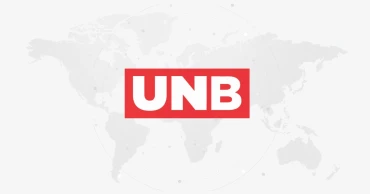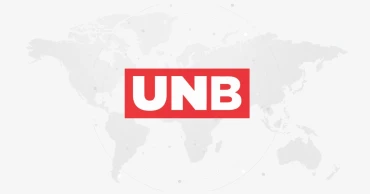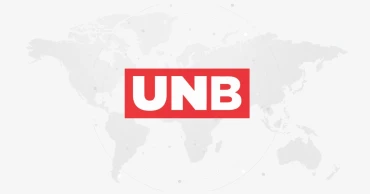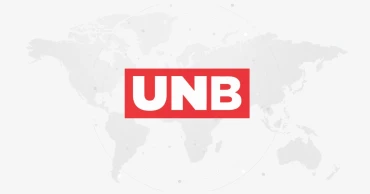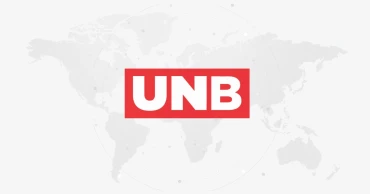monetary policy
Prolonged tight monetary policy stalling Bangladesh’s growth: DCCI
Dhaka Chamber of Commerce & Industry (DCCI) on Monday expressed deep concern over the central bank’s continued contractionary monetary policy, warning that prolonged tightening is holding back Bangladesh’s economic growth without effectively curbing inflation.
As one of the country’s leading private sector bodies, the DCCI said maintaining a tight monetary stance solely to control inflation has failed to deliver the intended results, while inflicting significant damage on productive economic activities, investment and employment generation.
The chamber noted that private sector credit growth has plunged to a 22-year low, falling sharply to 6.1 percent in December 2025, reflecting acute liquidity constraints, high interest rates and rising borrowing costs.
These factors, it said, are choking entrepreneurship, industrial expansion and job creation.
Private sector investment is also on a declining trend, dropping from 24.18 percent of GDP in FY2023 to 22.48 percent in FY2025, reinforcing concerns that prolonged monetary tightening is discouraging long-term investment decisions.
“The Bangladesh economy cannot grow with a tightly clenched monetary fist,” the DCCI observed.
The chamber pointed out that broad money (M2) growth rose from 7 percent in June 2025 to 9.6 percent by December 2025, indicating monetary expansion and raising questions about the overall effectiveness and consistency of the current tightening policy.
DCCI calls for immediate normalisation of Ctg port operations
Export performance has also come under pressure. Over the last six months, exports recorded consecutive negative growth, plunging to minus 14.25 percent in December 2025, signaling weakening external demand and declining competitiveness amid high financing costs.
DCCI said sustained growth, employment creation and investment revival are not possible under an excessively restrictive monetary regime.
It urged the next elected government to adopt a more pragmatic, growth-supportive policy framework through better coordination between fiscal and monetary policies.
The chamber called for ensuring flexible liquidity availability, reduced borrowing costs and a balanced approach that safeguards macroeconomic stability while supporting economic recovery in the days ahead.
15 days ago
Bangladesh’s inflation expected to fall below 7% by June: Govt
The government has expected that inflation in the country will fall below 7 percent by June 2026 ‘due to its contractionary monetary policy and austerity measures.
The expectation was expressed at a high-level meeting at the state guest house Jamuna on the country’s overall economic progress and budget expenditure on Monday under the leadership of Chief Adviser Prof Muhammad Yunus, according to a statement of the Chief Adviser’s press wing.
Finance Adviser Salehuddin Ahmed, Planning Adviser Wahiduddin Mahmud and Bangladesh Bank Governor Ahsan H Mansur attended the meeting.
The meeting reviewed key macroeconomic indicators, including inflation, wage growth, agricultural production, the financial and external sectors, remittance inflows, imports and the opening of letters of credit.
Read more: Bangladesh inflation rises to 8.29% in November
The 12-month average general inflation rate fell below 9 percent in November 2025 for the first time since June 2023 and on a point-to-point basis, inflation crossed 9 percent in March 2023, reaching 9.33 percent, it said.
The point-to-point inflation dropped below 9 percent in June 2025 and declined further to 8.29 percent in November 2025.
Regarding wage growth, the meeting observed that in recent years the gap between inflation and wage growth had been wide, resulting in a decline in real income.
In recent months of the current fiscal year, the gap has narrowed significantly.
In November 2025, point-to-point inflation and wage growth stood at 8.29 percent and 8.04 percent respectively, compared with average rates of 9.02 percent and 7.04 percent in fiscal year 2022-23.
On agriculture, the meeting noted that appropriate incentives and management led to a good Boro harvest in the last fiscal year, while favorable conditions so far indicate the possibility of a good Aman harvest this season.
Read more: Rice biggest driver of October’s food inflation in Bangladesh: GED
As a result, the government is expected to achieve its food grain procurement target in the current fiscal year.
As of December 15, 2025, Aman rice production reached 16.095 million metric tonnes, and officials expect the final output to exceed the target once harvesting is completed.
Although Aus rice production fell slightly short of the target, total production increased by 7.20 percent compared to fiscal year 2024-25, said the Press Wing.
Imbalances in various economic indicators have already moved towards a more stable position, said the statement.
On the financial and external sectors, the meeting was informed that gross foreign exchange reserves stood at 32.57 billion US dollars as of December 18, 2025, up from around 25 billion dollars in August 2024.
The reserve levels are expected to rise further due to a more stable exchange rate, increased remittance inflows and a significant rise in interest rates in the financial sector, it added.
Regarding the current account, it was noted that Bangladesh had recorded consecutive deficits from fiscal year 2016-17 to 2023-24, amounting to 18.7 billion dollars, 11.6 billion dollars and 6.6 billion dollars in fiscal years 2021-22, 2022-23 and 2023-24 respectively.
Due to improved financial management and measures to curb money laundering, the deficit narrowed to just 139 million dollars at the end of fiscal year 2024-25.
In the July to October period of the current fiscal year the deficit stood at 749 million dollars.
On remittances, the meeting noted that overseas employment for 500,000 workers was secured during July to November of the current fiscal year, compared with 397,000 during the same period last year.
During the same period, remittance inflows amounted to 13.04 billion dollars, marking a 17.14 percent increase year on year.
Import growth during July to November of fiscal year 2024-25 was negative at 1.2 percent but rose to 6.1 percent during the same period of fiscal year 2025-26, it said.
Read more: Bangladesh Bank keeps policy rate unchanged amid inflation fears ahead of election and Ramadan
On letters of credit, the meeting noted that the growth in opening LCs for capital machinery was negative 32.8 percent during July to October 2024 but increased to 27.7 percent in the same period of the current fiscal year.
Similarly, growth in opening LCs for industrial raw materials rose from 10.1 percent to 40.98 percent over the same period.
2 months ago
Bangladesh Bank likely to ease monetary policy amid interest rate shift
Bangladesh Bank is expected to revise its long-standing contractionary monetary policy, with an eye towards easing interest rates.
This crucial shift comes in response to lower-than-desired credit growth observed in the previous fiscal year, a direct consequence of the tight monetary stance.
For the past three fiscal years, the central bank has maintained a contractionary policy, primarily aimed at taming persistent inflation and stabilising the volatile foreign exchange market.
The central bank’s Monetary Policy Committee (MPC) now suggests measures to reduce interest rates in a bid to stimulate credit flow and boost employment.
Bangladesh sees sharp drop in bank deposits over scams, mergers: Report
Sources close to the MPC indicate that inflation is on a decreasing trend and has already fallen to a significant level.
This positive development is paving the way for a review of the contractionary policy, which economists and policymakers believe has severely impacted investment, credit growth and overall employment in recent fiscal years.
"The monetary policy significantly affected investment, credit growth and employment in the previous fiscal years. The central bank must now consider these major macroeconomic issues in the new monetary policy," said a prominent economist associated with the MPC.
The forthcoming monetary policy announcement on Thursday will reveal the extent of the central bank's adjustments.
GED projects cautious optimism for Bangladesh economy in FY2026
This move signals a potential shift in focus from solely inflation containment to balancing price stability with economic growth and job creation.
Types of Monetary Policy
Expansionary (Loose) Monetary Policy aims to stimulate economic growth, reduce unemployment and prevent deflation. This involves measures like lowering interest rates, buying government securities and reducing reserve requirements.
Contractionary (Tight) Monetary Policy aims to curb inflation and cool down an overheating economy. This involves measures like raising interest rates, selling government securities, and increasing reserve requirements.
The primary goal of monetary policy is to achieve macroeconomic objectives such as:
Price Stability: Keeping inflation low and stable. This is often the most important objective as high and volatile inflation erodes purchasing power and creates economic uncertainty.
Bangladesh needs to adapt strategically in order to navigate complex challenges of 2025: ICCB
Economic Growth: Promoting sustainable economic expansion and a high rate of employment.
Financial Stability: Ensuring the health and stability of the financial system, including banks and financial markets.
Exchange Rate Stability: Managing the value of the domestic currency in relation to trade with other currencies.
How Monetary Policy Works
Central banks implement monetary policy by adjusting the availability and cost of money in the economy. They do this primarily through various tools that influence interest rates, bank lending and the overall money supply. The mechanism through which these actions affect the economy is known as the monetary transmission mechanism.
Banking sector needs $35 billion for reconstruction as 80% funds embezzled: Finance Advisor
6 months ago
Bangladesh Bank set to relax monetary policy, ease interest rates
Bangladesh Bank will unveil its new monetary policy by the end of July, signalling a shift from its current contractionary stance in a bid to spur economic growth while still reining in inflation.
Sources indicate the central bank is preparing modest adjustments to the policy interest rate under International Monetary Fund (IMF) guidance.
Business leaders are, however, pinning their hopes on a more investment-friendly regime of lower lending rates and continued political stability.
Monetary policy is the primary lever for steering a nation’s economic course, fostering development, taming inflation and regulating money supply over a given period.
For the first half of the current fiscal year, Bangladesh Bank is fine-tuning its strategy to strike a delicate balance between curbing inflation and reviving private investment.
Business leaders have long argued that the prevailing tight policy has dampened investment, a situation worsened by recent political uncertainty.
DCCI President Taskin Ahmed said, "We hope the upcoming monetary policy will be more business-friendly and geared towards increasing credit flow. We are looking for a more lenient monetary policy, particularly hoping for a reduction in the interest rates that have risen significantly.”
To contain soaring consumer prices, the central bank previously raised its policy rate from 8.5 per cent to 10 per cent. Although the move helped ease inflation, it also choked off investment momentum.
Bangladesh Bank injects Tk 52,500 crore into struggling banks
Acknowledging this, policymakers now appear inclined to soften their approach.
Bangladesh Bank spokesperson Arif Hossain Khan said, "If we continue with a contractionary policy, it won't be investment-friendly. We have already achieved two of our three key factors, and while we haven't fully controlled inflation, we have managed to reduce it somewhat. Considering this, this time around, we might see a slightly different approach; it may not be as contractionary.”
Economists warn that inflation cannot be curbed solely through monetary tightening.
"Inflation is not solely caused by the money supply. Bangladesh's inflation, for instance, won't just come down if Bangladesh Bank increases a policy rate. To control inflation, we also need to manage the supply chain effectively," said Masrur Reaz, Chairman of the Policy Exchange Bangladesh, a research organisation.
Analysts agree that bolstering the supply chain is pivotal though implementing such reforms remains a formidable challenge.
Exchange-rate pressures, taka depreciation and elevated borrowing costs have combined to depress private-sector credit growth, currently languishing below 8 per cent.
The resulting drag on industrial output and economic activity has prompted the central bank to contemplate a more accommodating policy stance, according to insiders.
The new policy, due later this month, will reveal how far Bangladesh Bank is prepared to go in loosening the purse strings without letting inflation flare again, officials said.
7 months ago
Bangladesh Bank to announce monetary policy on Feb 10
Bangladesh Bank (BB) is set to announce a new monetary policy on February 10 for the remaining period of the current fiscal year 2024-25.
The date of the central bank board meeting is fixed on February 9, and the next day (Feb 10) will be announced the monetary policy, said a senior official of the monetary policy department.
Business leaders call for extension of loan repayment period
The official said the monetary policy statement (MPS) is being formulated for the second half of the current fiscal year, maintaining a 'contradictory’ nature and prioritising combating inflation.
The central bank is holding meetings with internal and external stakeholders and economists to formulate monetary policy to boost the economy.
1 year ago
BB announces new monetary policy to tackle inflation
Bangladesh Bank (BB) on Wednesday announced a contractionary monetary policy statement for the second half of the fiscal year 2023-24 to tame inflation.
“The central bank’s priority is to control inflation at any cost. To do this we set a policy of controlling currency flow outside the bank for another step to curb the growing inflation,” said Abdur Rouf Talukder, governor of the central bank.
Bangladesh has revised down the economic growth projection for FY 2023-24 to 6.5 percent from the initial 7.5 percent considering the ongoing challenges in the financial sector.
Bangladesh Bank authorises 90-day buyers' credit to import essentials for Ramadan
The authorities, however, revised the projection for inflation upwards to 7.5 percent from 6 percent as consumer prices persistently stayed high, according to the monetary policy statement.
The governor said that the central bank wants to bring down inflation to 7.5 percent by June. For this, the policy interest rate has been increased by 25 percentage points to 8 percent in the new monetary policy.
He said that the monetary target is downgraded to curb money supply cutting down private sector credit growth to 10 percent for June from the existing target of 11 percent.
Bangladesh Bank unveils SMART-derived interest rates for January
According to the new policy, the interest rate is being increased from 7.75 percent to 8 percent.
As a result, the interest rate of the money, which other banks will borrow from the BB, will increase.
Besides, the central bank hints to increase the reverse repo rate (now called the Standing Deposit Facility or SDF) minimum interest rate by 75 percentage points from 5.75 percent to 6.50 percent. If there is surplus money in the market, the central bank withdraws the money through reverse repo.
The cap on the special repo or standing lending facility (SLF) interest rate in the policy interest corridor has been reduced by 25 basis points to 9.50 percent from 9.75 percent. This will reduce the cost of borrowing money from the BB during liquidity crises in banks.
Bangladesh Bank dissolves National Bank’s board
The monetary policy announced for the first half of the current financial year (up to December) targeted private sector credit growth at 10.9 percent. But this target of credit growth like inflation has not been achieved. And till last November, credit growth in the private sector has been achieved at 9.90 percent, which is 1 percent less than the target.
2 years ago
Budget not based on IMF conditions: Finance Minister
Bangladesh's Finance Minister AHM Mustafa Kamal has said that the national budget for the fiscal year (FY) 2023-24 was not based on the conditions of the International Monetary Fund (IMF).
"Like in different countries, the IMF has come to Bangladesh and made some recommendations to help the economy. We took their prescriptions as per our needs, but did not follow them all in preparing the budget," he said while addressing a post-budget press conference at the Bangabandhu International Conference Centre (BICC) in the city on Friday (June 2, 2023).
He said the IMF is not helping the countries only by providing money, they also monitor the economy. This is good for the economy.
Responding to a repeated number of questions on inflation and commodity price hike, the finance minister said the government is concerned about the rising trend in inflation.
Read more: Unrealistic budget won’t help overcome economic crisis: Fakhrul
"We're apprehensive about inflation, but it is not beyond our control. We cannot stop feeding the people," he said.
He said the government is approaching in a flexible way to contain inflation. Through social safety-net programmes, the government has been providing food to poor people.
"We're trying to identify the reasons for inflation and address those. If we need to give any concession, we will do that," he said.
Agriculture Minister Abdur Razzaque, LGRD Minister Tajul Islam, Education Minister Dipu Moni, Commerce Minister Tipu Munshi, Finance Secretary Fatima Yasmin, Bangladesh Bank Governor Abdur Rouf Talukder, and National Board of Revenue (NBR) Chairman Abu Hena Rahmatul Munim were among others also addressed on the occasion.
Read more: CPD dismisses budget's projections on growth, inflation, revenue collection
The Finance Minister claimed that the new budget was mainly focused on benefiting the poor people.
"We have expanded our tax net so that more taxes could be collected. Everybody has to pay tax," he said, adding that like other budgets in the past this was also prepared targeting both the next election and the people.
"We cannot separate the people or the election from our goal of the budget," he said.
Responding to another question, he said that all the projections made in the previous budgets were implemented.
Kamal said Bangladesh has been well placed in remittance earnings among the countries in the region.
Read more: Budget 2023-24: Govt allocates Tk88,162 crore in education sector, up 8.2%
After a downward trend, remittance earning is again increasing and we can meet five months of our import bill through our reserve.
He said after some measures taken by the government, the inflow of remittance will gradually go up.
At the press conference, with the request of the Finance Minister, Bangladesh Governor Abdur Rouf Talukder responded to a good number of questions, specially, on inflation, remittance and banking sector.
He said that Bangladesh Bank will announce its monetary policy on June 19 where it will lay out the plan on containing inflation, and increasing remittance and reserve.
He claimed that though the government's loan from the banking system is increasing, it will not push up inflation as the central bank is withdrawing more money from the market through selling dollars.
Read more: Budget sets 7.5 percent annual economic growth, inflation at 6 percent
2 years ago
Govt’s efforts on to keep economy vibrant despite global recession: PM
Prime Minister Sheikh Hasina on Wednesday (May 31, 2023) said that the government is making every effort to keep Bangladesh's economy alive despite the global economic recession caused by the Covid-19 pandemic and the Ukraine-Russia war.
The prime minister said this while responding to a tabled question of Awami League MP elected from Chattogram MA Latif for PM’s question-answer session.
She said the government has been able to quickly bring the country's economy to the pre-Covid high growth trend dealing with the recession, inflation and instability in the global economy caused by the pandemic and the war.
Read more: President Erdogan and PM Hasina vow to take Dhaka-Ankara ties to new height
“Amid the crisis over Covid, our growth in the financial year 2019-20 was 3.45 percent which was one of the highest in the world for that period,” she claimed.
She said that due to the various steps taken by the government to boost the economy, the GDP growth in the financial year 2020-21 increased by 6.94 percent. “It further increased to 7.10 percent in FY 2021-22.”
Hasina also highlighted various measures taken by the government to keep the economy of the government alive.
Read more: PM calls for more Swedish investment as H&M boss calls on her
These included government expenditure rationalisation, social protection, subsidies in electricity, energy and agriculture sectors, export incentives, rise in remittance inflow, monetary policy etc, she said.
In response to the question of Jatiya Party MP elected from Dhaka Syed Abu Hossain, the prime minister highlighted the various steps taken by the government to control the prices of daily commodities and said as a result of the government's activities, it has been possible to control the prices of essentials and the poor people are benefiting from it.
In response to the question of Jatiya Party MP elected from Pirojpur Rustam Ali Farazi, the she said that it will be possible to start rail traffic on the Dhaka-Mawa-Bhanga section of the Padma Bridge Rail Link Project by September 2023 and the Jessore section from June 2024.
Read more: Work together to regain lost glory in science and technology: PM Hasina to Muslim community
In response to reserved seat MP Kha Mamata Lovely's question, the prime minister said that 555,134 families have been rehabilitated through the Ashrayan project.
2 years ago
Curbing inflation without destabilising macroeconomic situation presents challenge for budget: Selim Raihan
Economist Dr Selim Raihan believes the National Budget of Bangladesh for the fiscal year 2023-24 is being presented at a difficult time, when it will be a challenge to devise policies to manage inflation while also maintaining a stable macroeconomic situation,
Dr Selim Raihan is Professor at the Department of Economics, University of Dhaka, and the Executive Director of the South Asian Network on Economic Modeling (SANEM).
Talking with UNB on the upcoming budget, Dr Raihan pointed out two major challenges--controlling inflation and macroeconomic management for the upcoming budget.
“Higher inflation for a long time creates instability in the domestic markets and lower-income people are affected severely,” he said.
Read more: No new pay scale, govt employees to get 20% dearness allowance in new budget
The government’s measures to cut inflation have not proved effective, so new measures to reduce inflation need to be included in the budget, he opined.
Dr Raihan said the monetary policy is not working to curb inflation as there is a mismatch with interest rates - the continued delay in withdrawing the interest rate caps also prolongs inflation.
Besides, a big challenge of domestic market management is that government agencies could not implement effective market management against monopoly businesses.
As a result, prices of many essential items are higher in the domestic market relative to the global market. Notably, prices of some items increase in Bangladesh at the same time that there is a downward trend in the international market, said Dr Raihan.
Read more: No let-up in safe drinking water scarcity in Khulna’s Dacop
Regarding macroeconomic management, he said reducing the defaulted loans and achieving the revenue collection target are big factors for stability.
Forex reserves management and foreign exchange rate fluctuation also worked for instability of the macroeconomic situation, which are required to make it stable, he said.
The International Monetary Fund (IMF) gave conditions for reducing defaulted loans to a desired level, but the latest update revealed no headway in that regard, which Dr Raihan said was alarming.
The IMF’s desired target of increasing the tax GDP ratio by 0.5 percent each year, till the 2025-26 fiscal, is also proving a challenge for the National Board of Revenue.
Read more: Inflation, revenue shortfall, dollar crisis the major challenges for economy ahead of election-year budget
The SANEM chief said although the revenue collection target increased every year in the budget, in the absence of any coherent plan and institutional capacity-building initiatives for NBR, there is almost no progress towards attaining those targets. In fact, the revenue collection shortfall keeps getting wider, he pointed out.
Dr Raihan suggested joint initiatives of Bangladesh Bank and the Ministry of Finance to reduce the defaulted loans, saying the central bank alone cannot handle the issue.
He also sought the central bank’s effective measures to ensure good governance in the banking sector, averting the pressure of any influential group.
Dr Raihan also suggested increasing allocation and coverage under the social safety net, to ease the woes of vulnerable groups.
Read more: Bank default loans surge to Tk1.31 lakh crore: BB
2 years ago
Bangladesh govt aims to increase money supply over next two fiscals
The government of Bangladesh has fixed a target to increase the money supply to 16.5 percent from the existing 15.6 percent in the next two fiscals.
As per a government document, in the 2022-23 fiscal the rate of money supply is at 15.6 percent.
For the next 2023-24 fiscal the government has projected to increase the rate to 16 percent and for the 2024-25 fiscal it will be 16.5 percent.
Academically, the enhancement of money supply might increase inflation. This kind of target of ‘broad money’ growth would further invite inflation in the country.
Also read: Deposits at IBBL 'completely safe': Bangladesh Bank
"Broad money" – or M2 – is a calculation of the money supply that includes all components of "narrow money", such as cash and checking deposits, and also "near money" such as savings deposits, money market securities, and other time-related deposits.
M2 is a broader measure of money supply and is being closely watched as an indicator of money supply and future inflation, and as a target of central bank monetary policy.
If broad money exceeds nominal GDP growth, academically, commodity prices will take another steep jump, leaving limited-income consumers and the poor to bear the brunt of the increasing squeeze on the cost of living.
In 2020-21 fiscal year the money supply was 13.6 percent.
ReadMore: Bangladesh seeks zero tariff on apparel exports to US at 6th TICFA meeting
In the 2021-22 fiscal the proposed money supply rate was 13.8 percent, but the revised rate was 15 percent.
It was increased because of the government stimulus packages to inject money in various sectors to run their activities for offsetting the impact of COVID-19 pandemic that stalled the economic activities of the whole world, as well as in Bangladesh.
Apart from the impact of COVID-19 pandemic, the Russia-Ukraine war, and sanctions and counter-sanctions caused another deadly impact on the world economy as world trade was seriously damaged due to this.
The prices of essential commodities, fuel oil and transportation costs increased heavily. Russia and Ukraine were one of the main sources of Bangladesh for various essential items, like wheat.
Read More: Nagad is a Digital Bangladesh success story: Mustafa Jabbar
As a result, the people of the country have to spend more money in purchasing their day to day essential items.
To lessen the burden of fixed income group, low income group and lower middle income group people, the government has taken various types of steps.
These include selling rice among 50 lakh families at the rate of Tk 15 per kg and providing special family cards to one crore people by which they will be able to procure essential commodities at fair price.
3 years ago





